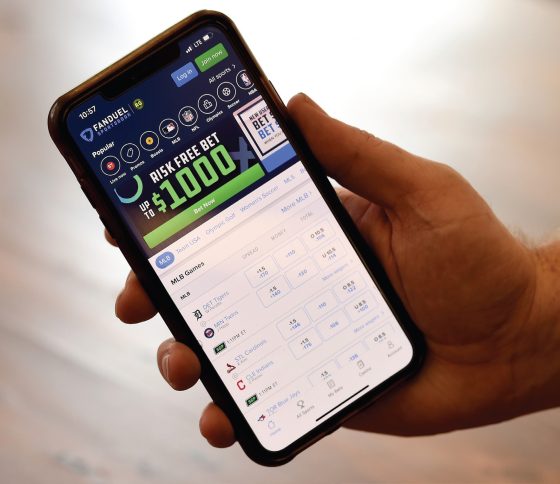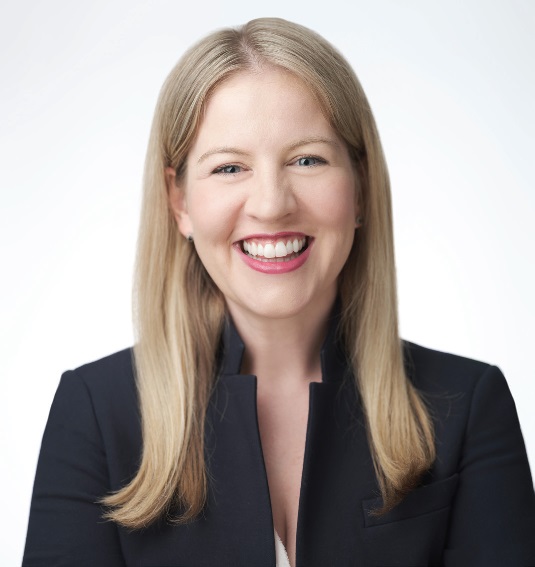GETTING IT RIGHT WITH THE RESPONSIBLE GAMING MESSAGE
Responsible-gaming messaging is at the bedrock of the industry’s approach to the U.S. market. By David McKee.
It’s spreading like wildfire. Sports betting, that is. It’s presently legal and active in 33 U.S. states, and three more are soon to follow. The year is young, as are legislative sessions, in which legalized sports betting is on the docket from coast to coast.

Along with this rapid growth come growing pains. In Ohio, both DraftKings and Barstool Sports have been fined for marketing to underage players.
These and other infractions led Problem Gambling Network of Ohio Executive Director Derek Longmeier to tell TV station NBC4, “We need to make sure that the fines are at a level that it’s not just a cost of doing business.”
Regardless of the age of the market itself, problem gambling is always a concern. A poll of 1,699 players who have used responsible-gaming (RG) tools, conducted by Super Casino Sites, found that 49.7 percent were sports bettors. Of all respondents, 73 percent deemed the RG methods available to them either highly or at least somewhat effective.
“This industry is brand new and we’re attracting new customers, not just new sports bettors but people that have been betting on sports as long as there have been sports to bet on,” says Cait DeBaun, vice president for strategic communications and responsibility for the American Gaming Association.
“Our research shows that 90 percent of customers are casual gamblers that enjoy it as entertainment, set a budget and stick to it. The sports-betting audience is seeing the continued growth of responsibility. Eighty-one percent of past-year sports bettors say the industry is committed to promoting responsible gaming and preventing problem gambling.”
Estimates of the prevalence of disordered gambling amongst sports bettors vary wildly. An Ohio newspaper put it at one in four. DeBaun, citing research from the International Center for Responsible Gaming, places it in the vicinity of two to three percent. Of course, as AGA founder Frank Fahrenkopf liked to say, one problem gambler is one too many.
Going against the grain
A company that follows a Fahrenkopfian model is New York-based FanDuel, the leading provider of sports betting in most North American states where it is legal.
Says Vice President of Communications Chris Jones, “We also work in partnership with Keith Whyte at the National Council of Problem Gambling. We are a member of the American Gaming Association. We serve on all of their responsible-gaming committees and we are a signatory to their ‘Have a Game Plan’ campaign, which we support, which has run both visually and in-venue.”
One particularly striking innovation made by FanDuel was its mode of operation in Ontario, where sports betting only recently went legal (and where consumers are already reported to be wearying of the monsoon of marketing).
As Jones notes, being a first mover—especially in the initial 10 days of operation—is critical. As he puts it, “You probably have Uber on your phone or you have Lyft. You don’t use both. Winning that customer early is very important.
“So we took the very wonderful decision track that, when we launched into Ontario, rather than flood the airwaves with promotional offers or traditional marketing we launched with nothing but responsible-gaming creative. Nothing for the first five days but we still saw strong success in the Ontario market. We want the customer to know that they can trust our product, our system and ultimately trust that we have their best interests at heart all the time.”

A broad response
FanDuel may be one signatory to the AGA’s code of conduct but there are many others, as DeBaun proudly notes. She lists online sports betting providers like DraftKings, casino companies such as MGM Resorts International, Las Vegas Sands and Wynn Resorts, tribal casinos starting with Hard Rock International, Mohegan Sun and Foxwoods, as well as suppliers Aristocrat, Konami, Light & Wonder, etc., not counting the payment processors and financial institutions that have come aboard.
“As sports betting has expanded,” DeBaun resumes, “one of the AGA’s top priorities has been ensuring that the entire ecosystem understands their responsibility and we’re really successful in doing that through the ‘Have a Game Plan’ campaign and not only bring our members to the table with a common message but also leagues like MLB, the NHL, NASCAR, the PGA Tour, and team owners like Monumental Sports and MSG Group, and media like NESN and VISN who have joined the campaign because they appreciate that everyone has a responsibility, and want to elevate a message to advocate better.”
It’s not just a question of advocacy but of responding to a need.
As Helen James of Super Casino Sites writes, citing Whyte’s research, “sports bettors are more likely to report recurrent risk behaviors, especially when placing wagers several times per week. Consequently, such punters are more likely to take advantage of the responsible gambling tools available to them.”
FanDuel has a multi-pronged approach for nipping problem gambling in the bud. Safer-gaming tools are built into its platform and,
Jones says, “we encourage customers to use them right at the outset of when they verify and become a customer.”
These include deposit ceilings, time limits and wager constraints. The Super Casino Sites study found that a plurality of punters (28.6 percent) employed deposit limits, while bet limits were popular with 24 percent and time limits with only 21.6 percent.
Resumes Jones, “We never want our customers to be wagering outside of their personal budget. We also want customers to be playing within their means. We certainly don’t their account to be anything other than a form of entertainment. This is supposed to be a fun and entertaining way of enjoying the game or event in more of an enhanced way but we don’t want that taking you away from friends or family.” The company also sends RG messages to customers (“You haven’t set a limit”) during the first 30 days of their life cycle with FanDuel, “a gentle way to remind customers to balance and maintain a proper level of play.”
Getting the message across
The sheer size of FanDuel’s operation is reflected in the scale of its escalations team, 200 compliance-staffers strong. In addition to monitoring problematic play, these officers also look out for non-RG issues, including money laundering.
But its core purpose, as Jones puts it, is to keep an eye peeled for danger signs from players: “The escalations team will monitor the chat function inside our app and if a customer is signaling that maybe they are struggling or they say something even offhanded such as ‘If this guy doesn’t make this kick I might kill myself,’ they certainly act, escalate, reach out to that customer with a wellness check if it’s warranted. In a lot of instances, we will exit them from the platform.”
Two RG ambassadors are employed by FanDuel. Both are intimately familiar with problem-gambling issues.
One is Craig Carton, an FS1 broadcaster who also has the highest-rated radio show of WFAN in New York City. “He went to jail for his issues with problem gambling,” Jones says bluntly. “He reports to Amy Howe, our CEO, directly, and he brings a personal face and a humanized voice to the issues of problem gambling.”
Also punching the RG heavy bag for FanDuel is boxer Amanda Serrano. “She holds two different titles,” Jones says of the Puerto Rican pugilist. “She’s the first woman to ever headline a boxing match at Madison Square Garden, sold out.
She’s also a responsible-gaming ambassador because a member of her family has struggled with gambling addiction. So she brings a unique sense of advocacy, because she’s an athlete herself, because she’s a woman and because she’s bilingual.”
Both Carton and Serrano are active on FanDuel’s RG College Tour, as the company continues putting its money where its mouth is. The tour recently swung through Fordham University, Sacred Heart University and Manhattanville College, before taking a summer recess. It will resume in the autumn when, not coincidentally, sports betting fires up again in earnest.
Whereas FanDuel often takes the micro-approach of trying to engage with individual bettors, the AGA is engaged on a macro level, making sure that RG messaging is done on a large scale. DeBaun cites the generosity of companies like DraftKings, FanDuel’s main competitor, which invested $1.6 million in grants to local problem-gambling groups in 2022.
“We’re partnering and funding with resources that help customers to bet responsibly but also have additional resources available. Finally, we’re funding independent research into the prevalence and impact of sports betting,” DeBaun says. “The work that the AGA does on a daily basis is vital to the long-term success of our marketplace.”
She adds that she will be particularly excited to see the results of research currently being conducted at Kentucky’s Bowling Green University. Its academics are looking into the prevalence of sports betting and what its impact has been on public health, research partly bankrolled with AGA grant money.

Education begins at home
DeBaun expounds that “a thriving casino-gaming industry is absolutely dependent on proactive player education, ensuring that those who need help have it. You see that in what the industry has done and how we’ve expanded our investment and commitment to responsible gaming over the last decade. Looking to the future, we’re always looking for ways to raise the bar. We’ve made good progress but there’s more we can do and that starts with making sure that how we look at responsible gaming today aligns with the market of today.”
One way in which FanDuel does that is to have an annual ‘Play Well Day’ in which all employees, top to bottom, must participate. The company ties it to yearly compensation, with all bonuses pegged to the amount of Play Well participation.
“In addition, new employees have 30 days to complete the training or they’ll have an issue with their compensation,” Jones reports. “Whether you’re an assistant, a technologist, a marketing person or one of the traders themselves, everyone in the company from the CEO down to an intern has to take the training.”
As for ‘Play Well Day’ itself, “it’s a full day where don’t work in the traditional sense. The entire day is a series of speaking engagements. We had all our partners in, talking about the importance of responsible gaming and how we’re building this as a thread throughout our entire culture. It is to remind all 3,000 employees that this is a non-negotiable part of the business and we have to take a day out of the year to really remind ourselves that we are building a sustainable business. The way to do that is always to put customer protection at the forefront.”
Or, as DeBaun concludes, “We’ve seen tremendous change in the U.S. in the availability of legal gaming. You know, getting this right is not only the right thing to do but it’s key to our long-term success.”
Preview Image: Shutterstock
*** The article was originally published in Sports Betting Operator Magazine July 2023 edition***
GETTING IT RIGHT WITH THE RESPONSIBLE GAMING MESSAGE was first seen on Sports Betting Operator